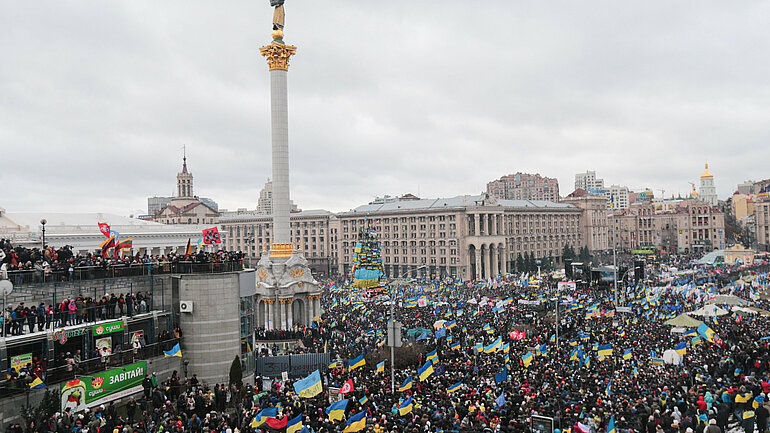The Urban Advantage in Revolution and the Struggle for Control of Public Space
Anton-Wilhelm-Amo-Str. 60
10117 Berlin
The Urban Advantage in Revolution and the Struggle for Control of Public Space
Anton-Wilhelm-Amo-Str. 60
10117 Berlin

Mark Beissinger will explore the shift of revolution since the end of the Cold War to cities and the rise of “urban civic revolts”—i.e., revolts that attempt to mobilize as many people as possible in central urban spaces in a concentrated period of time, thereby paralyzing government and society with the hope of inducing regime collapse. In contrast to rural rebellions and urban armed revolts, urban civic revolts attempt to take strategic advantage of the spaces between buildings--the empty space of the public square and the boulevard--to mobilize large numbers in order to disrupt political and commercial life. This type of revolt demonstrates an extraordinarily high rate of success due largely to the ways in which it can effectively leverage the revolutionary advantages of cities: the power of numbers; the thickened presence of communications networks; and the vulnerability of concentrated centers of power and commerce to disruption. As this talk will explore, the emergence and outcome of urban civic revolts to a large extent reflects a struggle between regimes and oppositions for control over public space--through its design and the regulation and policing of its use.
The lecture will be held in English.
Participant
Mark R. Beissinger is the Henry W. Putnam Professor of Politics at Princeton University. He is author or editor of five books, including most recently (with Stephen Kotkin) Historical Legacies of Communism in Russia and Eastern Europe (Cambridge University Press, 2014). His recent writings have dealt with such topics as individual participation in the Ukrainian and Arab Spring revolutions, the impact of new social media on opposition movements in autocratic regimes, and the evolving character of revolutions globally over the last century.
Der Vortrag ist der Teil der ZOiS Conference 2018 "Contested Spaces"
The notion of space has become more prominent across the social sciences in recent years. Contestation, by comparison, has always been a central issue. Our specific regional focus on Eastern Europe allows us to link the discussions about space and contestation. What kind of spaces are contested, and by whom? At what particular moments does the contestation of space materialise, and how does it evolve over time?
The annual ZOiS Conference presents research on the relationship between state and society shaping contestation, on the public spaces of secular and religious claims, and on mapping and living with contested borders.